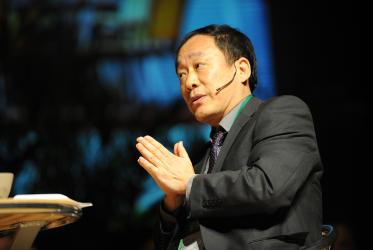Displaying 41 - 59 of 59
Religious leaders urge a ban on fully autonomous weapons
02 April 2015
WCC gives thanks for the life of Ninan Koshy
06 March 2015
Momentum builds for ban on nuclear weapons
16 December 2014
WCC to host workshop on human rights and nuclear disasters
20 February 2014
Busan assembly highlights significance of peace
07 November 2013








